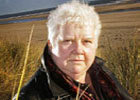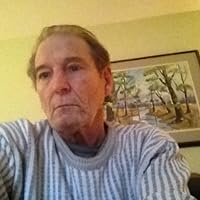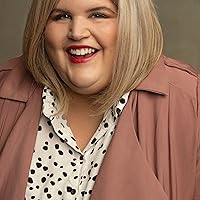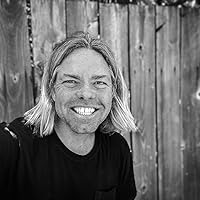Empathetic Quotes
Quotes tagged as "empathetic"
Showing 1-30 of 38

“Beauty is not who you are on the outside, it is the wisdom and time you gave away to save another struggling soul like you.”
―
―

“Before you call yourself a Christian, Buddhist, Muslim, Hindu or any other theology, learn to be human first.”
―
―
“If the onset of wrinkles in middle age were referred to as laughter lines, then to look at him, Scott thought, Twinkle's life must have been hilarious. He had sharp eyes that often seemed to visually contradict the lack of intelligence that could be derived from listening to him talk. There might not be a lot to respect in Twinkle, but Scott liked him. He just didn't want to end up like him.”
― The Elephant Tree
― The Elephant Tree

“No one has the rights to summon you. Only Stardust. And that because she’s your mother and not the queen.”
― Yildun: Worldmaker of Yand
― Yildun: Worldmaker of Yand
“The language of light can only be decoded by the heart.”
― Rise Up and Salute the Sun: The Writings of Suzy Kassem
― Rise Up and Salute the Sun: The Writings of Suzy Kassem

“Life sometimes reminds us that it is sometimes heartless by giving something or someone we really need to someone who does not need or even want them or it.”
―
―
“Empathy nurtures wisdom. Apathy cultivates ignorance.”
― Rise Up and Salute the Sun: The Writings of Suzy Kassem
― Rise Up and Salute the Sun: The Writings of Suzy Kassem
“The gut is the seat of all feeling. Polluting the gut not only cripples your immune system, but also destroys your sense of empathy, the ability to identify with other humans. Bad bacteria in the gut creates neurological issues. Autism can be cured by detoxifying the bellies of young children. People who think that feelings come from the heart are wrong. The gut is where you feel the loss of a loved one first. It's where you feel pain and a heavy bulk of your emotions. It's the central base of your entire immune system. If your gut is loaded with negative bacteria, it affects your mind. Your heart is the seat of your conscience. If your mind is corrupted, it affects your conscience. The heart is the Sun. The gut is the Moon. The pineal gland is Neptune, and your brain and nervous system (5 senses) are Mercury. What affects the moon or sun affects the entire universe within. So, if you poison the gut, it affects your entire nervous system, your sense of reasoning, and your senses.”
― Rise Up and Salute the Sun: The Writings of Suzy Kassem
― Rise Up and Salute the Sun: The Writings of Suzy Kassem

“Forgiveness is a transformative act because it asks you to be a more empathetic and compassionate person, thereby making you better than the person you were when you were first hurt.”
―
―

“What is life?
Life is living in this moment,
experiencing and experimenting
but experience isn’t life.
Life is reflecting and meditating
but reflection isn’t life.
Life is helping and guiding
but philanthropy isn’t life.
Life is eating and drinking
but food isn’t life.
Life is reading and dancing
but art isn’t life.
Life is kissing and pleasuring
but sex isn’t life.
Life is winning and losing
but competition isn’t life.
Life is loving and caring
but love isn’t life.
Life is birthing and nurturing
but children aren’t life.
Life is letting go and surrendering
but death isn’t life.
Life is all these things
but all these things aren’t life.
Life is
always more.”
―
Life is living in this moment,
experiencing and experimenting
but experience isn’t life.
Life is reflecting and meditating
but reflection isn’t life.
Life is helping and guiding
but philanthropy isn’t life.
Life is eating and drinking
but food isn’t life.
Life is reading and dancing
but art isn’t life.
Life is kissing and pleasuring
but sex isn’t life.
Life is winning and losing
but competition isn’t life.
Life is loving and caring
but love isn’t life.
Life is birthing and nurturing
but children aren’t life.
Life is letting go and surrendering
but death isn’t life.
Life is all these things
but all these things aren’t life.
Life is
always more.”
―

“It is always the gentle ones I fear for the most, those willing to bare their hearts, who grieve for others and feel happy for others’ happiness.”
― Legendborn
― Legendborn

“If anyone was capable of understanding how someone else felt, it was Nancy. There weren't as many layers between her and the world as there were with the rest of us. She had that rare ability of being able to stand in someone else's shoes and get inside their skin.”
― Disclaimer
― Disclaimer

“There are two categories of people on earth:
1. Human beings.
2. HuMANE beings.”
― Song of a Nature Lover
1. Human beings.
2. HuMANE beings.”
― Song of a Nature Lover

“Orang yang merasa dirinya paling benar dan paling penting, tidak akan pernah bisa berempati terhadap orang lain.
Yang akan dilakukannya adalah justru mengambil hak orang lain.”
―
Yang akan dilakukannya adalah justru mengambil hak orang lain.”
―

“Her fight with alcohol had made for contentious exchanges and, if that were possible, even more contentious silences. Tony, empathetic to the point of self-harming, felt the pain of her abstinence as powerfully as anything he'd ever endured personally.”
― Insidious Intent
― Insidious Intent
“The word “empath” jumped up in my awareness a few years after I had already been in the States. When I first came across it, it felt so woo-woo and new-agey that the “normal” part of me balked at it. It was hard enough to own being a Highly Sensitive Person, words that had research backing them. But this empath thing, this was taking it even a step further. It veered off into ambiguous, questionable territory. In fact, when I had first stumbled across the word online, trying to find a way to understand a part of my sensitivity that being an HSP didn’t quite encapsulate, I hadn’t even thought that it could possibly have anything to do with me. But the more I listened to other people’s stories, the more I followed the breadcrumbs, the more it started feeling that although the words that people used to describe their empath experiences were foreign, what they were talking about was essentially my own experience. It was just that some of these people connected that experience to belief systems I didn’t always resonate with while some others wrapped up the word in explanations that felt like the making up of a false story. But slowly, I could see that at the heart of it, beyond the cloak of words, beyond the different interpretations that people gave, our experiences felt similar. Like these so-called empaths, I often felt flooded with other people’s feelings. Their curiosity, worry and frustration jumped out at me. This often made me feel like I was walking through emotional minefields or collecting new feelings like you would collect scraps of paper. Going back to India after moving to the States, each time, I was stuck by how much all the little daily interactions, packed tightly in one day, which were part of my parents’ Delhi household, affected me energetically. Living in suburban America, I had often found the quiet too much. Then, I had thought nostalgically about India. Weeks could pass here without anyone so much as ringing the bell to our house. But it seemed like I had conveniently forgotten the other side of the story, forgotten how overstimulating Delhi had always been for me. There was, of course, the familiar sensory overload all around -- the continuous honking of horns, the laborers working noisily in the house next door, the continuous ringing of the bell as different people came and went -- the dhobi taking the clothes for ironing, the koodawalla come to pick up the daily trash, the delivery boy delivering groceries from the neighborhood kiraana store. But apart from these interruptions, inconveniences and overstimulations, there was also something more. In Delhi, every day, more lives touched mine in a day than they did in weeks in America. Going back, I could see, clearly for the first time, how much this sensory overload cost me and how much other people’s feelings leaked into mine, so much so that I almost felt them in my body. I could see that the koodawalla, the one I had always liked, the one from some kind of a “lower caste,” had changed in these past few years. He was angry now, unlike the calm resignation, almost acceptance he had carried inside him before. His anger seemed to jump out at me, as if he thought I was part of a whole tribe of people who had kept people like him down for years, who had relegated him to this lower caste, who had only given him the permission to do “dirty,” degrading work, like collecting the trash.”
―
―
“The word “empath” jumped up in my awareness a few years after I had already been in the States. When I first came across it, it felt so woo-woo and new-agey that the “normal” part of me balked at it. It was hard enough to own being a Highly Sensitive Person, words that had research backing them. But this empath thing, this was taking it even a step further. It veered off into ambiguous, questionable territory. In fact, when I had first stumbled across the word online, trying to find a way to understand a part of my sensitivity that being an HSP didn’t quite encapsulate, I hadn’t even thought that it could possibly have anything to do with me. But the more I listened to other people’s stories, the more I followed the breadcrumbs, the more it started feeling that although the words that people used to describe their empath experiences were foreign, what they were talking about was essentially my own experience. It was just that some of these people connected that experience to belief systems I didn’t always resonate with while some others wrapped up the word in explanations that felt like the making up of a false story. But slowly, I could see that at the heart of it, beyond the cloak of words, beyond the different interpretations that people gave, our experiences felt similar. Like these so-called empaths, I often felt flooded with other people’s feelings. Their curiosity, worry and frustration jumped out at me. This often made me feel like I was walking through emotional minefields or collecting new feelings like you would collect scraps of paper. Going back to India after moving to the States, each time, I was stuck by how much all the little daily interactions, packed tightly in one day, which were part of my parents’ Delhi household, affected me energetically. Living in suburban America, I had often found the quiet too much. Then, I had thought nostalgically about India. Weeks could pass here without anyone so much as ringing the bell to our house. But it seemed like I had conveniently forgotten the other side of the story, forgotten how overstimulating Delhi had always been for me. There was, of course, the familiar sensory overload all around -- the continuous honking of horns, the laborers working noisily in the house next door, the continuous ringing of the bell as different people came and went -- the dhobi taking the clothes for ironing, the koodawalla come to pick up the daily trash, the delivery boy delivering groceries from the neighborhood kiraana store. But apart from these interruptions, inconveniences and overstimulations, there was also something more. In Delhi, every day, more lives touched mine in a day than they did in weeks in America. Going back, I could see, clearly for the first time, how much this sensory overload cost me and how much other people’s feelings leaked into mine, so much so that I almost felt them in my body. I could see that the koodawalla, the one I had always liked, the one from some kind of a “lower caste,” had changed in these past few years. He was angry now, unlike the calm resignation, almost acceptance he had carried inside him before. His anger seemed to jump out at me, as if he thought I was part of a whole tribe of people who had kept people like him down for years, who had relegated him to this lower caste, who had only given him the permission to do “dirty,” degrading work, like collecting the trash.”
―
―

“Depression is kind of quantum physics of thought and emotion. It reveals what is normally hidden. It unravels you”
― Reasons to Stay Alive
― Reasons to Stay Alive
“The word “empath” jumped up in my awareness a few years after I had already been in the States. When I first came across it, it felt so woo-woo and new-agey that the “normal” part of me balked at it. It was hard enough to own being a Highly Sensitive Person, words that had research backing them. But this empath thing, this was taking it even a step further. It veered off into ambiguous, questionable territory. In fact, when I had first stumbled across the word online, trying to find a way to understand a part of my sensitivity that being an HSP didn’t quite encapsulate, I hadn’t even thought that it could possibly have anything to do with me. But the more I listened to other people’s stories, the more I followed the breadcrumbs, the more it started feeling that although the words that people used to describe their empath experiences were foreign, what they were talking about was essentially my own experience. It was just that some of these people connected that experience to belief systems I didn’t always resonate with while some others wrapped up the word in explanations that felt like the making up of a false story. But slowly, I could see that at the heart of it, beyond the cloak of words, beyond the different interpretations that people gave, our experiences felt similar. Like these so-called empaths, I often felt flooded with other people’s feelings. Their curiosity, worry and frustration jumped out at me. This often made me feel like I was walking through emotional minefields or collecting new feelings like you would collect scraps of paper. Going back to India after moving to the States, each time, I was stuck by how much all the little daily interactions, packed tightly in one day, which were part of my parents’ Delhi household, affected me energetically. Living in suburban America, I had often found the quiet too much. Then, I had thought nostalgically about India. Weeks could pass here without anyone so much as ringing the bell to our house. But it seemed like I had conveniently forgotten the other side of the story, forgotten how overstimulating Delhi had always been for me. There was, of course, the familiar sensory overload all around -- the continuous honking of horns, the laborers working noisily in the house next door, the continuous ringing of the bell as different people came and went -- the dhobi taking the clothes for ironing, the koodawalla come to pick up the daily trash, the delivery boy delivering groceries from the neighborhood kiraana store. But apart from these interruptions, inconveniences and overstimulations, there was also something more. In Delhi, every day, more lives touched mine in a day than they did in weeks in America. Going back, I could see, clearly for the first time, how much this sensory overload cost me and how much other people’s feelings leaked into mine, so much so that I almost felt them in my body. I could see that the koodawalla, the one I had always liked, the one from some kind of a “lower caste,” had changed in these past few years. He was angry now, unlike the calm resignation, almost acceptance he had carried inside him before. His anger seemed to jump out at me, as if he thought I was part of a whole tribe of people who had kept people like him down for years, who had relegated him to this lower caste, who had only given him the permission to do “dirty,” degrading work, like collecting the trash.”
―
―
“The word “empath” jumped up in my awareness a few years after I had already been in the States. When I first came across it, it felt so woo-woo and new-agey that the “normal” part of me balked at it. It was hard enough to own being a Highly Sensitive Person, words that had research backing them. But this empath thing, this was taking it even a step further. It veered off into ambiguous, questionable territory. In fact, when I had first stumbled across the word online, trying to find a way to understand a part of my sensitivity that being an HSP didn’t quite encapsulate, I hadn’t even thought that it could possibly have anything to do with me. But the more I listened to other people’s stories, the more I followed the breadcrumbs, the more it started feeling that although the words that people used to describe their empath experiences were foreign, what they were talking about was essentially my own experience. It was just that some of these people connected that experience to belief systems I didn’t always resonate with while some others wrapped up the word in explanations that felt like the making up of a false story. But slowly, I could see that at the heart of it, beyond the cloak of words, beyond the different interpretations that people gave, our experiences felt similar. Like these so-called empaths, I often felt flooded with other people’s feelings. Their curiosity, worry and frustration jumped out at me. This often made me feel like I was walking through emotional minefields or collecting new feelings like you would collect scraps of paper. Going back to India after moving to the States, each time, I was stuck by how much all the little daily interactions, packed tightly in one day, which were part of my parents’ Delhi household, affected me energetically. Living in suburban America, I had often found the quiet too much. Then, I had thought nostalgically about India. Weeks could pass here without anyone so much as ringing the bell to our house. But it seemed like I had conveniently forgotten the other side of the story, forgotten how overstimulating Delhi had always been for me. There was, of course, the familiar sensory overload all around -- the continuous honking of horns, the laborers working noisily in the house next door, the continuous ringing of the bell as different people came and went -- the dhobi taking the clothes for ironing, the koodawalla come to pick up the daily trash, the delivery boy delivering groceries from the neighborhood kiraana store. But apart from these interruptions, inconveniences and overstimulations, there was also something more. In Delhi, every day, more lives touched mine in a day than they did in weeks in America. Going back, I could see, clearly for the first time, how much this sensory overload cost me and how much other people’s feelings leaked into mine, so much so that I almost felt them in my body. I could see that the koodawalla, the one I had always liked, the one from some kind of a “lower caste,” had changed in these past few years. He was angry now, unlike the calm resignation, almost acceptance he had carried inside him before. His anger seemed to jump out at me, as if he thought I was part of a whole tribe of people who had kept people like him down for years, who had relegated him to this lower caste, who had only given him the permission to do “dirty,” degrading work, like collecting the trash.”
―
―

“It is always the gentle ones I fear for the most, those willing to bare their hearts, who grieve for others and feel happy for others’ happiness.”
― Skyhunter
― Skyhunter

“If we can love ourselves despite our flaws, why can't we be a little kind to others!”
― Mücadele Muhabbet: Gospel of An Unarmed Soldier
― Mücadele Muhabbet: Gospel of An Unarmed Soldier

“I want to emphasize how important it is to maintain a collaborative relationship even when you’re setting boundaries. Your response must always be expressed in the form of strong, yet empathic, limit-setting boundaries—that is, tough love.”
― Never Split the Difference: Negotiating As If Your Life Depended On It
― Never Split the Difference: Negotiating As If Your Life Depended On It

“We all need to be more empathetic towards other people. It is not 'cool' to laugh at the shape of their body, color of their skin, choice of hairstyle or lack of hair. Make jokes and be humorous but not at the expense of another person.”
―
―

“How could he do that to his own family?"
Daddy seemed to sense there was more to Harper's empathy. He reached across the table and gave her hand a big squeeze. "Don't know. Some folks aren't worth their weight in salt if you ask me." Daddy glanced over his shoulder toward the boy on the pier.
Harper pulled a claw off her crab and used it to point toward the other pier. She'd never even met the stepfather and was ready to throw the crab claw right in his face.
"Sweetheart." It was a your-compassion-is-acting-up-again warning, not an admonishment.
Harper blinked, forcing herself back to the present. "You're right. This dinner is a celebration, after all. You caught enough this morning to feed the whole county." She smiled at Daddy, proud of how hard he worked, then looked back down at the crab and slowly broke off the other claw. She hesitated when it made an unexpected pop.
"You're thinking about that crab getting caught, aren't you?"
Harper set the food back down on her plate and let her laughter go free. "How did you know?"
Daddy grinned. "That's my girl. Always considering the oxygen-deprived crustaceans.”
― The Dress Shop on King Street
Daddy seemed to sense there was more to Harper's empathy. He reached across the table and gave her hand a big squeeze. "Don't know. Some folks aren't worth their weight in salt if you ask me." Daddy glanced over his shoulder toward the boy on the pier.
Harper pulled a claw off her crab and used it to point toward the other pier. She'd never even met the stepfather and was ready to throw the crab claw right in his face.
"Sweetheart." It was a your-compassion-is-acting-up-again warning, not an admonishment.
Harper blinked, forcing herself back to the present. "You're right. This dinner is a celebration, after all. You caught enough this morning to feed the whole county." She smiled at Daddy, proud of how hard he worked, then looked back down at the crab and slowly broke off the other claw. She hesitated when it made an unexpected pop.
"You're thinking about that crab getting caught, aren't you?"
Harper set the food back down on her plate and let her laughter go free. "How did you know?"
Daddy grinned. "That's my girl. Always considering the oxygen-deprived crustaceans.”
― The Dress Shop on King Street
All Quotes
|
My Quotes
|
Add A Quote
Browse By Tag
- Love Quotes 98k
- Life Quotes 76.5k
- Inspirational Quotes 73.5k
- Humor Quotes 44k
- Philosophy Quotes 30k
- Inspirational Quotes Quotes 27k
- God Quotes 26.5k
- Truth Quotes 24k
- Wisdom Quotes 23.5k
- Romance Quotes 23.5k
- Poetry Quotes 22.5k
- Death Quotes 20k
- Life Lessons Quotes 20k
- Happiness Quotes 19k
- Quotes Quotes 18k
- Hope Quotes 18k
- Faith Quotes 18k
- Inspiration Quotes 17k
- Spirituality Quotes 15k
- Religion Quotes 15k
- Motivational Quotes 15k
- Writing Quotes 15k
- Relationships Quotes 14.5k
- Life Quotes Quotes 14.5k
- Love Quotes Quotes 14k
- Success Quotes 13.5k
- Time Quotes 12.5k
- Motivation Quotes 12.5k
- Science Quotes 11.5k
- Motivational Quotes Quotes 11.5k




